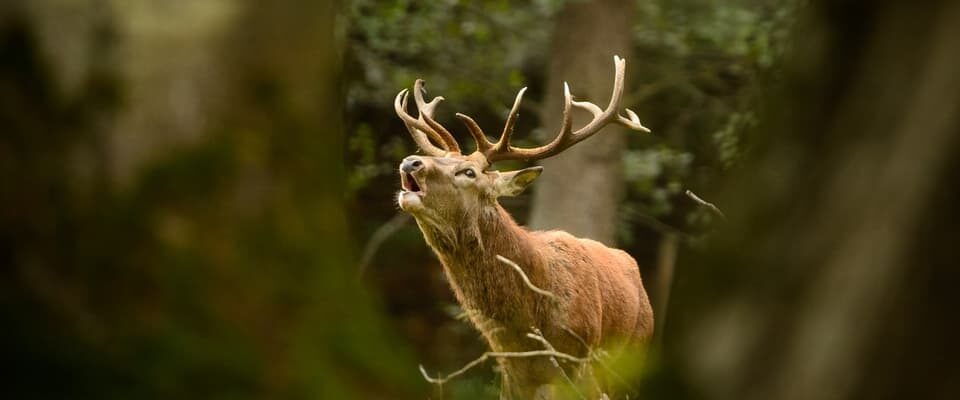Contents
Stressed, poorly camouflaged and not enough fat reserves: the mild temperatures have consequences for wild animals.
Green slopes, blooming crocuses and sweater temperatures – February was almost five degrees warmer than usual. But it’s not just us humans who feel the mild temperatures, also the wild animals: deer, rabbits, foxes and mice.
Too many old and weak animals
The lack of snow makes it easier for them to find food. But overall, climate change is doing more harm than good to animals.
Kurt Schweizer has been a gamekeeper in the Bernese Oberland for 22 years and says: “For animals at higher altitudes, mild winters mean that population regulation does not take place.”
Legend:
If old or weak deer survive, it is good for the individual animal, but negative for the population.
Keystone/Sina Schuldt
This means that even older and weaker animals survive and reproduce. This prevents natural selection and that is “undesirable,” says Kurt Schweizer. “The passing on of genetic material should be reserved for the strongest and fittest.”
Mild temperatures, on the other hand, have no effect on hibernation. “Hibernation is controlled by an internal clock,” says Schweizer.
Too little fat reserves
It becomes problematic when animals – for example the marmot – store fewer fat reserves due to the heat before they go into hibernation. “This can end fatally,” says Schweizer.
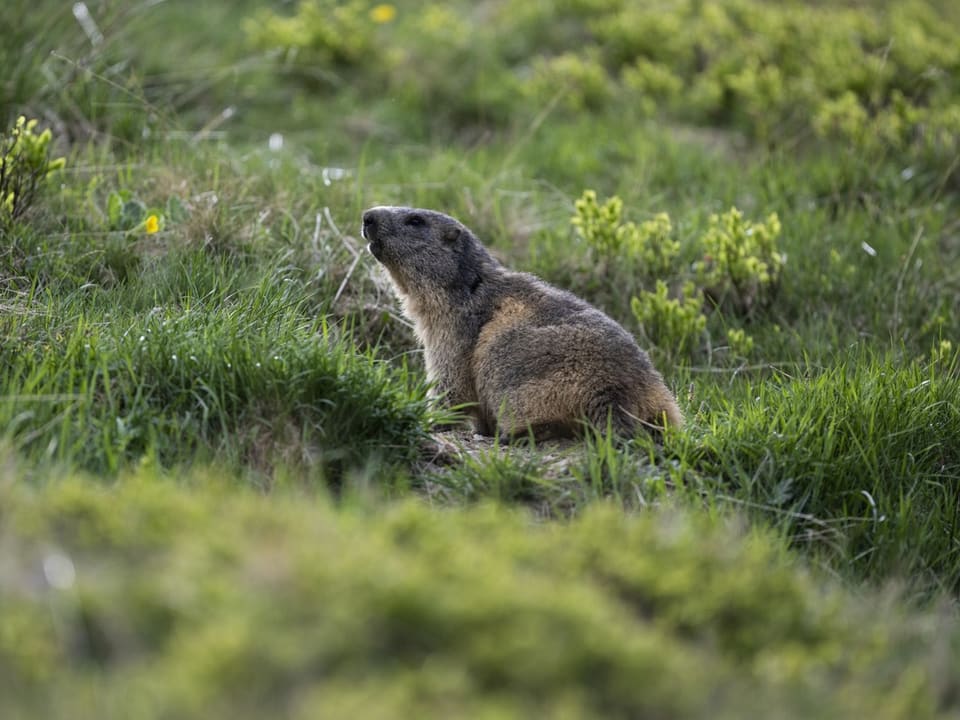
Legend:
If it is too warm in autumn, the marmot does not store enough fat reserves.
Keystone/Gian Ehrenzeller
Another negative consequence is the lack of camouflage. There are animals that change their clothes in winter, such as the mountain hare or the ptarmigan. “In the brown landscape they are seen by their predators and are therefore easy prey,” explains Schweizer.
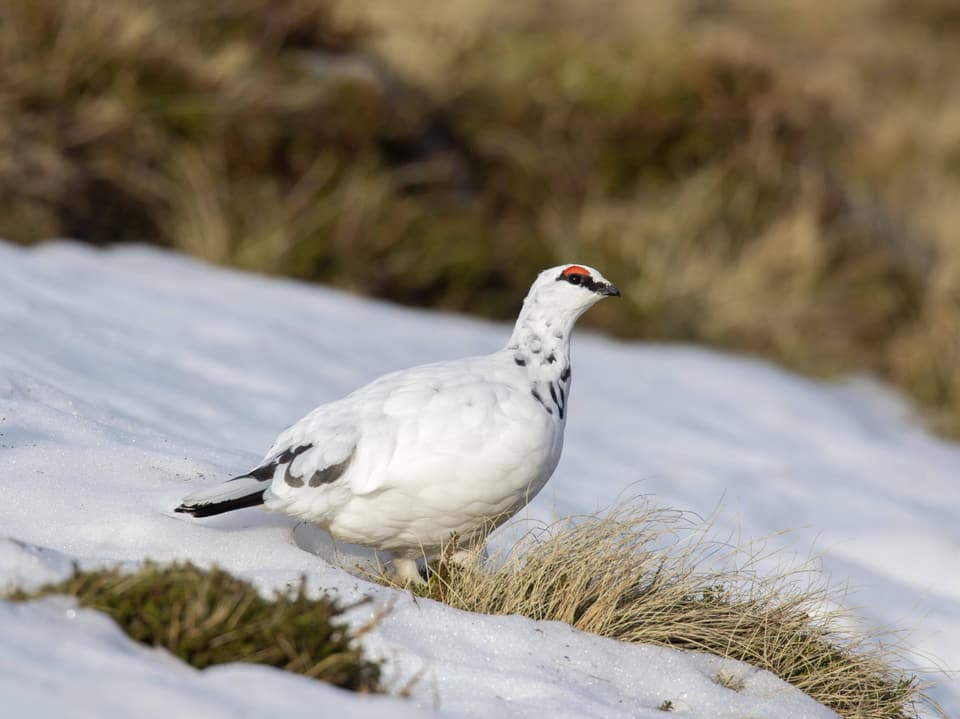
Legend:
White on green: When there is a lack of snow, the ptarmigan’s camouflage disappears.
Imago/imagebrocker
And last but not least, humans also cause problems for wild animals.
Imagine shining a flashlight into her bedroom.
When there is hardly any snow, hikers and mountaineers also move to higher altitudes, where there is usually peace. “They disturb the animals in their habitat,” says gamekeeper Kurt Schweizer and makes a comparison: “Imagine if someone were to shine a flashlight into their bedroom.”
If wild animals feel disturbed by humans, they relocate their activities to another – suboptimal – habitat. And that’s why the gamekeeper’s job has changed in recent years. “We have to check more often whether people are sticking to the rules,” says Kurt Schweizer.
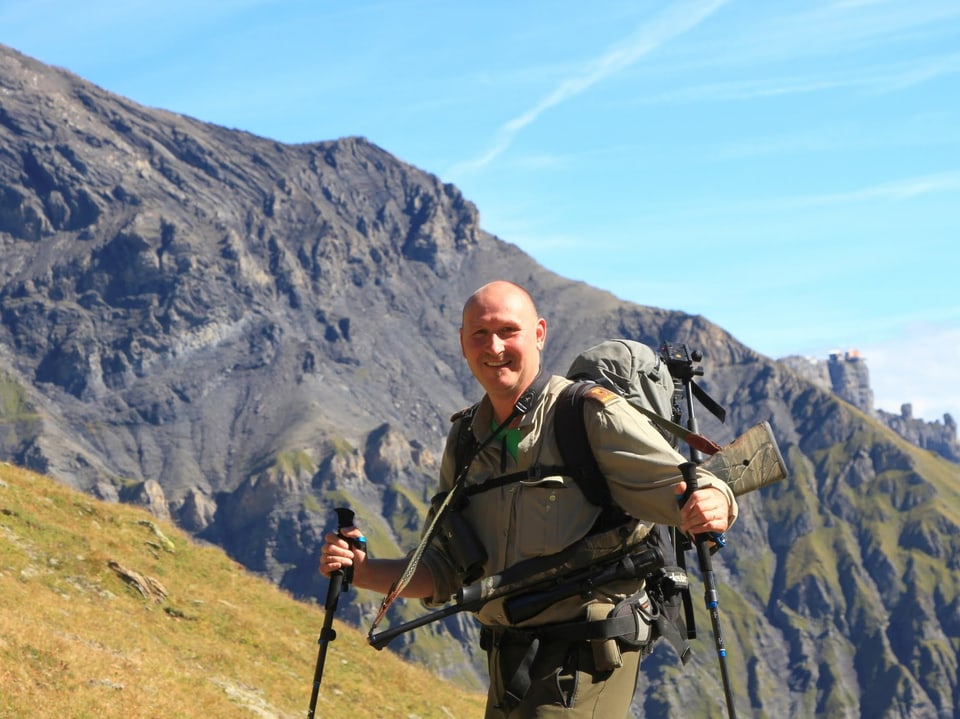
Legend:
Kurt Schweizer is a gamekeeper in the Bernese Oberland.
ZVG/Kurt Schweizer
But: There are also winners of the mild winter, such as ticks: “If it is not cold enough, they do not fall into hibernation and can be active all year round,” says Schweizer.
The wild boars also benefit: in mild winters they produce more offspring.
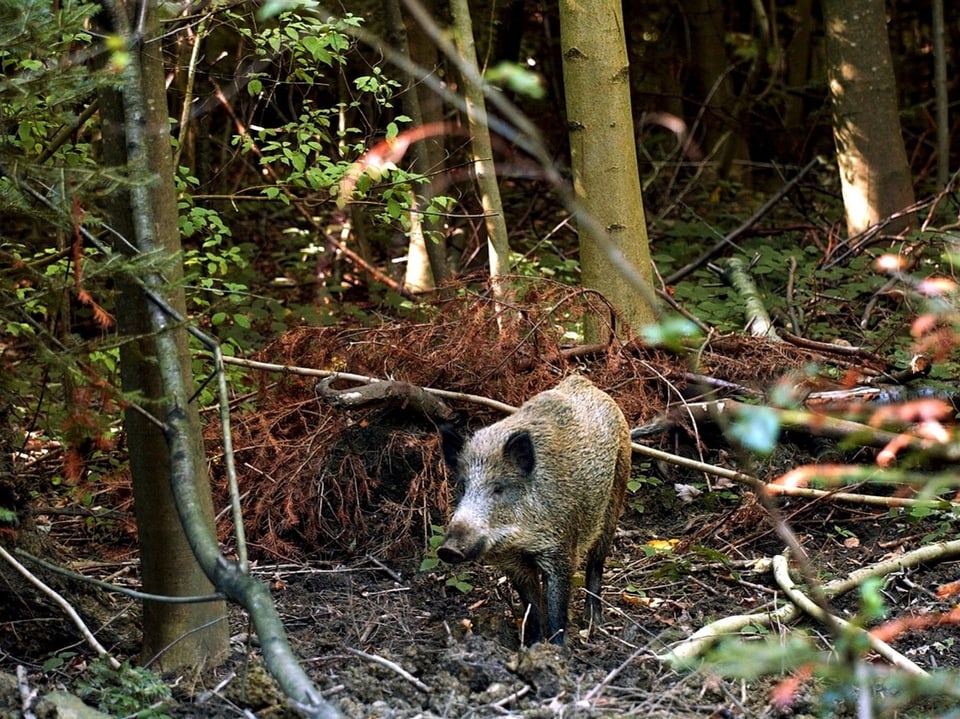
Legend:
Warmer winters and a better food supply ensure more offspring for wild boars.
Keystone/Steffen Schmidt
The gamekeeper is convinced that the wild animals will adapt to the mild winters in the long term. “It’s important that we protect them from stress as much as possible.”
